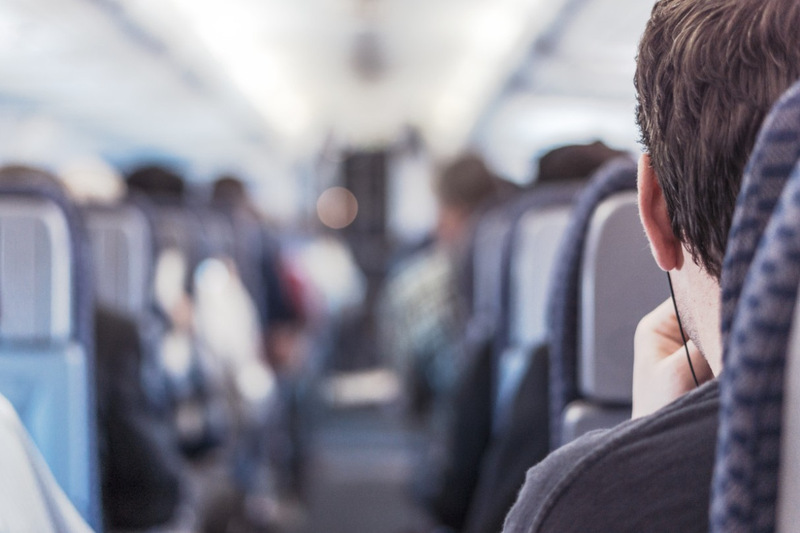
Corporate travel continues to be a driving force behind growth, whether it’s meeting new clients, strengthening partnerships, or exploring untapped markets. Yet for many organisations, the focus often rests on controlling budgets while the wellbeing of the travellers themselves slips down the priority list. Ignoring this comes at a cost.
Tired, stressed, or unsupported employees struggle to perform at their best, and the impact is felt in productivity, safety, and long-term business success. Traveller wellbeing isn’t just about making trips more comfortable but rather about safeguarding people and protecting the company’s interests. Here’s why it should sit at the centre of every corporate travel strategy.
The Link Between Wellbeing And Productivity
Employee performance is closely tied to health and wellbeing. A stressed or exhausted traveller isn’t going to perform at their best during meetings or negotiations. Long layovers, limited rest, and poor-quality accommodation can leave staff drained before they even arrive at their destination.
Supporting wellbeing with healthier meal options, comfortable rest, and time for recovery makes a clear difference. Travellers who are well-rested and cared for make sharper decisions and represent the company more effectively. By treating wellbeing as an investment rather than an expense, you create an environment where performance improves, and results follow.
Working with professionals like CT Business Travel management makes it easier to build policies that support employee wellbeing while staying compliant with budgets. This way, companies achieve a balance between cost control and human performance.
Duty Of Care And Legal Responsibilities

Every corporation has a duty of care to its staff, especially when they’re travelling for work. This responsibility goes beyond booking flights and hotels. It means ensuring that employees are safe, supported, and healthy while they’re away from home.
Failure to meet these obligations can leave businesses exposed to risk. UK law makes it clear that employers must safeguard their staff, and this includes travellers. Risk management strategies that factor in traveller wellbeing reduce liability and help maintain a strong corporate reputation.
Companies that invest in structured travel policies, 24/7 support, and real-time tracking demonstrate that they take duty of care seriously. This not only protects employees but also strengthens trust between staff and employer.
Retention And Employee Satisfaction
Talented employees have more choices than ever, and wellbeing plays a big role in where they choose to work. Business travel may be exciting on paper, but without proper support, it quickly becomes a burden. If employees feel overworked or unsupported on trips, it can damage morale and even push them to leave.
Organisations that prioritise wellbeing show their staff that they’re valued. Flexible booking policies, rest allowances, and wellness options during trips all contribute to higher satisfaction. For instance, offering downtime after long-haul flights or access to fitness facilities can make travel more sustainable for employees.
When companies invest in these measures, they see stronger retention and better engagement. Staff feel looked after, and that translates into loyalty and productivity.
Financial Benefits Of Prioritising Wellbeing
Neglecting wellbeing often leads to hidden costs. Employees who return from trips fatigued or unwell may take more sick leave. Missed meetings, trip cancellations, or last-minute changes can add up to substantial financial losses. Burnout is another serious risk, and it often comes with high turnover costs.
On the other hand, healthier and happier travellers reduce these expenses. A well-designed travel policy that incorporates wellbeing is not only ethical but also financially sound. Preventative measures, such as ensuring suitable rest breaks and access to quality accommodation, generate long-term savings.
The financial case is simple: spending a little more upfront on wellbeing pays off by reducing bigger costs later. Companies that adopt this approach protect both their budgets and their people.
Practical Ways Corporations Can Support Traveller Wellbeing

Supporting wellbeing doesn’t need to be complicated. Small adjustments can make a large difference to employee experience and outcomes. Partnering with wellness-focused hotels ensures staff have access to good rest and healthy amenities. Offering flexible itineraries gives employees time to recover and prepare properly for meetings.
Food options also matter. Encouraging healthier meals on the road helps maintain energy and focus. Allowing downtime, whether through adjusted schedules or wellness allowances, reduces stress and increases productivity.
Booking platforms that integrate wellbeing filters, such as safety, convenience, and comfort, make it easier to align trips with employee needs. These tools remove the guesswork from planning and show staff that their wellbeing is a priority.
Putting People First Delivers Better Results
Traveller wellbeing isn’t a luxury or an optional extra. It’s a core factor that affects safety, compliance, performance, and financial health. When corporations ignore it, they face higher costs, legal risks, and lower productivity. When they embrace it, they gain stronger results, greater loyalty, and a healthier workforce.
Companies that put people first in their travel policies will always outperform those that don’t. By building travel programmes that value wellbeing, you create an environment where both business and employees thrive. The future belongs to organisations that recognise that success is built on the wellbeing of their people.
